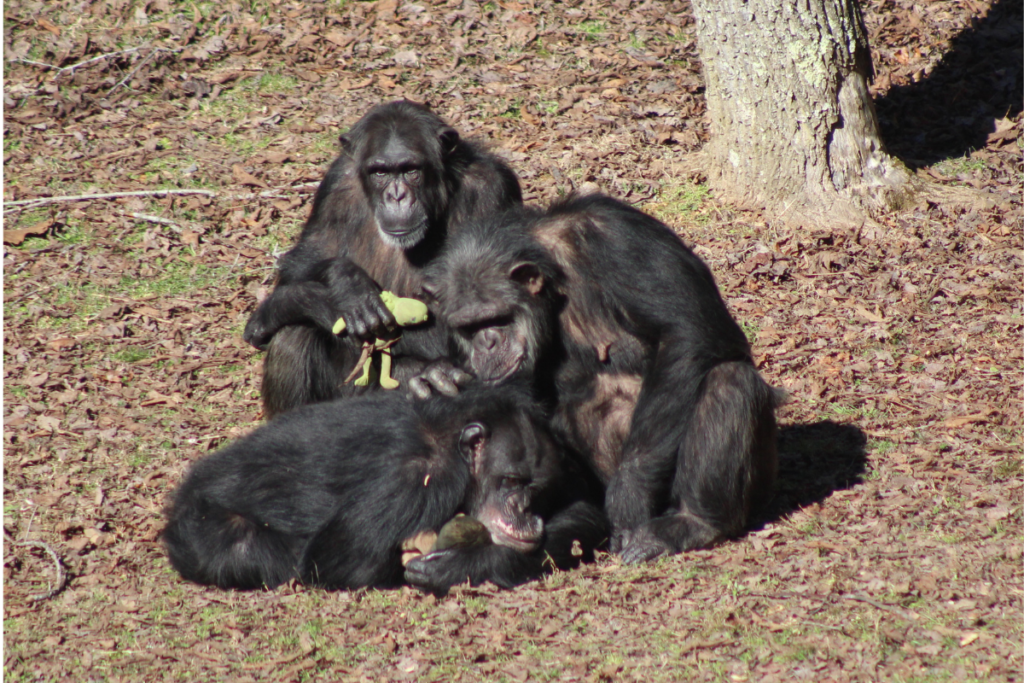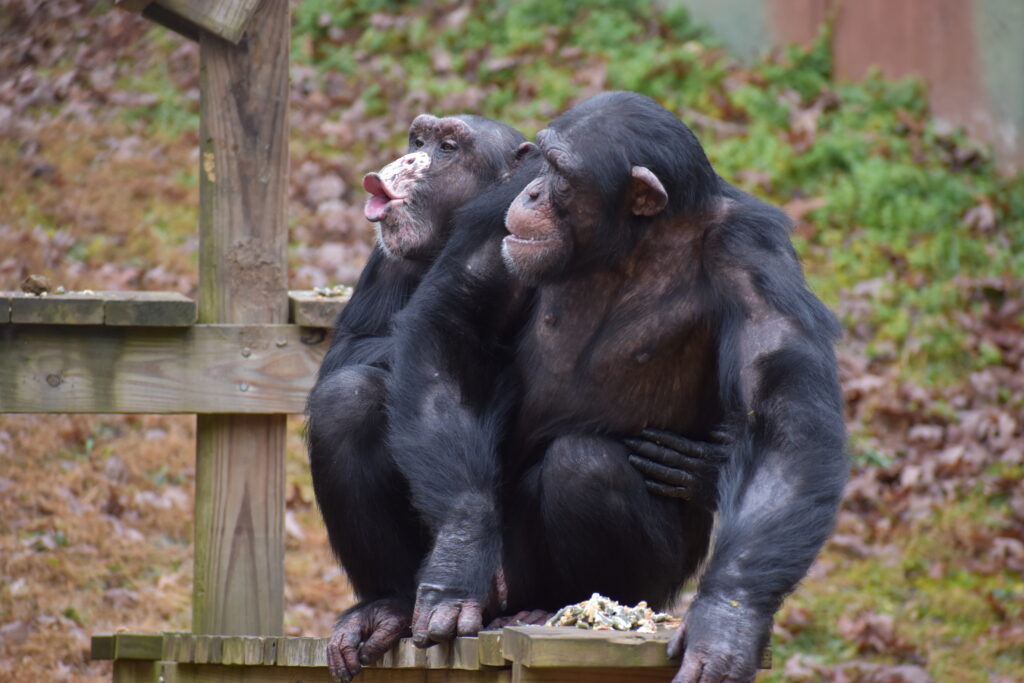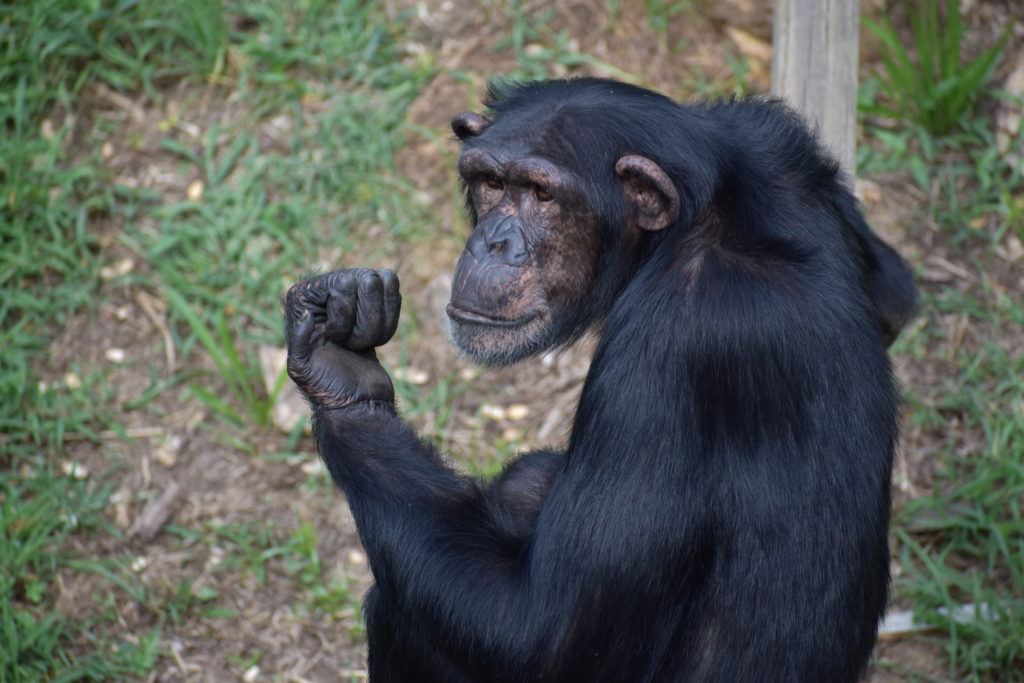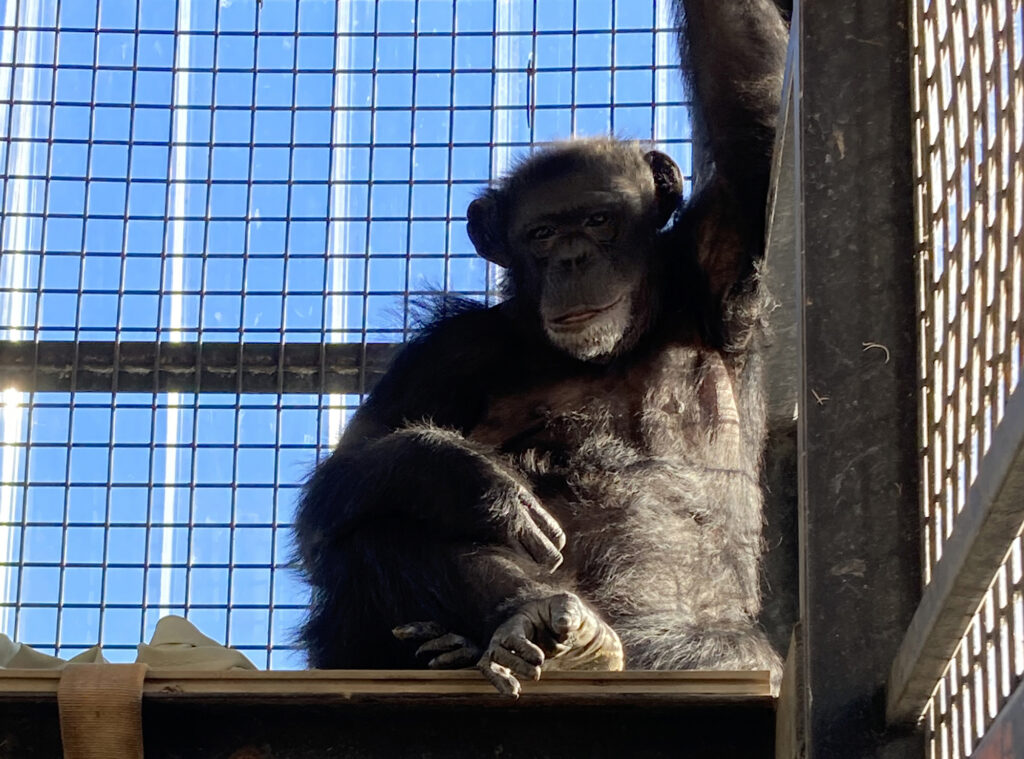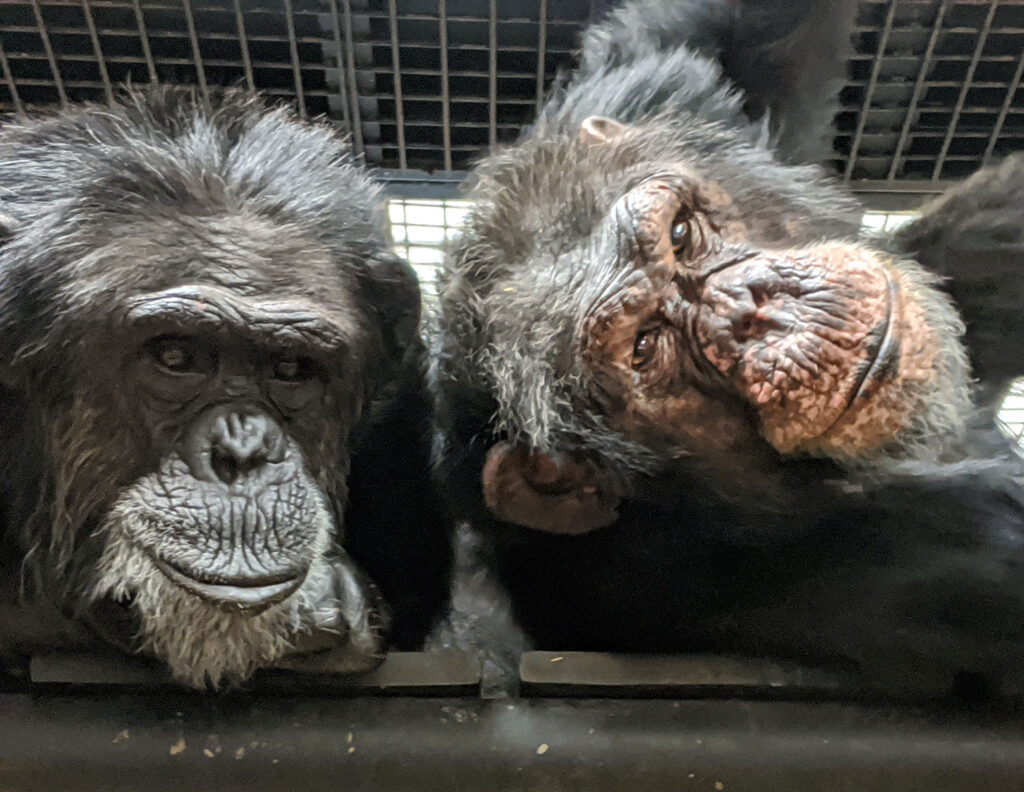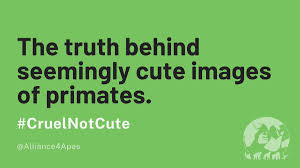Posts by Project Chimps
Big Girls, Little Girls, Middle Girls: Female Chimps Learn From Each Other
When chimps come to sanctuary, they may be interacting with other chimps (or chimps of the opposite sex) for the first time. They may fail to understand social norms, and feel awkward, unsure, or anxious around other chimps. These interactions can be tricky because the chimps haven’t learned lessons that mom usually instills during childhood.
Read MoreTraci Holliday Finds Community at Project Chimps
Traci Holliday climbs up the trail, explaining all its different features and who in the community at Project Chimps helped make them happen. no path through this wilderness.
Read MoreChimps Helping Chimps – Chimps Healing Chimps
Treating ex lab chimps—who have undergone countless procedures before retiring at sanctuary—is complicated. Staff at Project Chimps are highly sensitive to chimp residents who are averse to needles, mistrusting of humans, or have other hold-ups stemming from their traumatic past.
Read MoreCandy Retter’s Love for Animals
If it’s at Project Chimps, there’s a good chance Candy Retter has contributed to it. The 69- year-old has been here at the sanctuary for some of its most incredible moments and helps make it the special place it is. But how did she get here?
Read MoreMeet Jennifer: An Unsung Hero
Jenny isn’t one of our most famous residents, but we wanted to bring her into the spotlight. If you read on, you’ll find out why we consider Jenny a chimp hero!
Read MoreWhat Does It Mean to Be an “Enforcer”?
Chimps have drama. They have police officers policing the drama. And, apparently, the police officers have “motorcycles.”
Read MoreWinterizing a Villa
By Amber Camacho Winter is officially here and the staff have winterized the chimps’ villas to be ready for Old Man Winter to come knocking. It Takes a Villa I had the opportunity to be a small help with creating our new winterization material, as we test the chimp-durability of a high-grade marine plastic in…
Read MoreChimp Play as a Diplomatic Tool: Neal Teaches Kirk
Neal uses chimp play as a tool to derail conflict and calm situations. He inserts play into disagreements, which diffuses such high-tension moments. His playfulness importantly serves to distract chimps from their arguing.
Read MoreThe Impact of Chimps in Entertainment
Our recent interviews with Erika Fleury of NAPSA and Dr. Stephen Ross from Project ChimpCARE taught us how inappropriate portrayal of chimps in entertainment can have big consequences for how the public views chimpanzees.
Read MoreProject Chimps Transports Chimps in Need
Erika Fleury of NAPSA (North American Primate Sanctuary Alliance) sat down with us to talk about how Project Chimps helped NAPSA to transport some chimps in need of emergency relocation to their new homes. She also talked about how you can help other chimps still awaiting their lifelong homes.
Read More
